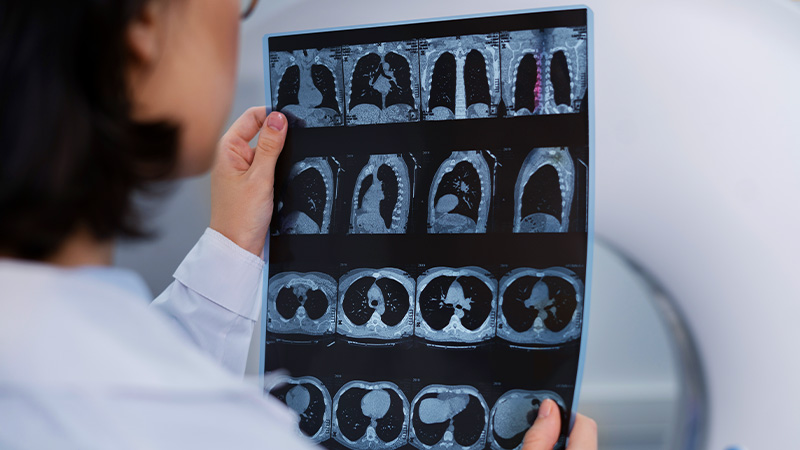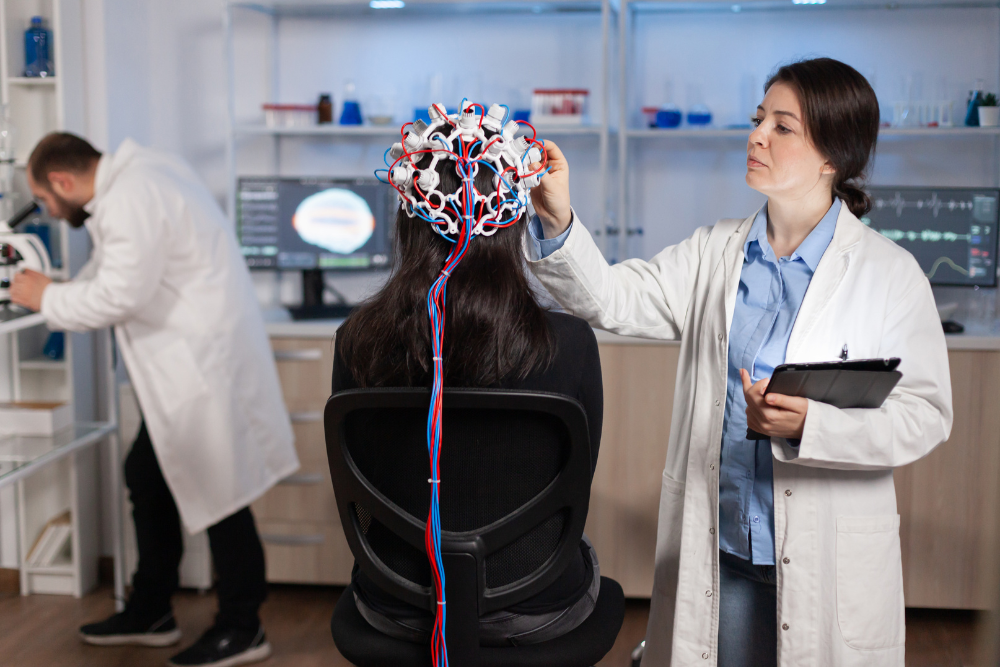Overview
Neurosurgery is a specialized area dedicated to the diagnosis and treatment of conditions affecting the nervous system, including the brain, spinal cord, and peripheral nerves. The nervous system plays a crucial role in controlling various bodily functions and processes.
Neurosurgical issues can range from minor, manageable symptoms to complex, life-altering conditions that require immediate medical attention. The nature and severity of these issues can vary, affecting different areas of the nervous system and leading to diverse symptoms.
Neurosurgical issues can range from minor, manageable symptoms to complex, life-altering conditions that require immediate medical attention. The nature and severity of these issues can vary, affecting different areas of the nervous system and leading to diverse symptoms.
Neurosurgical problems may manifest in several ways, including:
- Headaches, Seizures, and Cognitive Changes: Patients may experience persistent headaches, seizures, or cognitive impairments.
- Weakness or Numbness: A loss of strength or sensation in the limbs or other body parts can be indicative of neurological disorders.
- Chronic Pain: Ongoing, unexplained pain in the head, neck, or spine may necessitate evaluation by a neurosurgeon.
- Balance and Coordination Issues: Difficulty with balance, coordination, and motor skills may be a sign of neurological concerns.
- Altered Consciousness: Sudden alterations in consciousness or unexplained lapses in memory warrant prompt medical assessment.
The extent and duration of neurosurgical issues can vary, often influenced by factors such as the underlying condition, genetics, or environmental factors. If neurological issues significantly impact your quality of life, seeking medical attention at Parvathy Multispeciality Hospital in Chennai, is advisable.
Common Neurosurgical Conditions (Possible Causes)
Neurosurgical symptoms can be attributed to a wide range of underlying factors, including various medical conditions and circumstances. The nervous system is a complex network of cells and structures, and issues can arise from multiple causes. Possible causes of neurosurgical problems include:
- Brain Tumors: The growth of abnormal masses in the brain can lead to various neurological symptoms.
- Spinal Cord Injuries: Traumatic incidents such as accidents or falls may result in spinal cord injuries, requiring surgical intervention.
- Cerebrovascular Disorders: Conditions like aneurysms and strokes can affect blood flow to the brain, necessitating neurosurgical care.
- Nerve Compression: Conditions such as herniated discs or spinal stenosis may compress nerves and require surgical relief.
- Epilepsy and Seizure Disorders: Certain neurological conditions, like epilepsy, can lead to seizures and may require surgical management.
- Congenital Abnormalities: Some individuals may have congenital or acquired structural abnormalities in the nervous system, which can cause neurological symptoms.
Treatment and Care
The management of neurosurgical conditions involves a range of treatment options tailored to the specific condition, its severity, and individual patient needs. Here are some common treatment and care options for various neurosurgical conditions:
- Surgery: Surgical procedures may be necessary to treat conditions like brain tumors, spinal cord injuries, and vascular disorders.
- Medications: Neurosurgeons may prescribe medications to manage pain, inflammation, or seizures associated with neurological issues.
- Physical Rehabilitation: Patients may undergo physical therapy to regain function and mobility after neurosurgical procedures.
- Minimally Invasive Techniques: Some conditions can be treated with minimally invasive approaches, reducing recovery time.
- Lifestyle Modifications: Adopting a healthy lifestyle, including diet and exercise, can promote brain and nerve health.
When to Consult a Doctor ?
It is necessary to consult a neurosurgeon whenever you experience symptoms affecting your nervous system that disrupt your daily life. Consider seeking a consultation at Parvathy Multispeciality Hospital, if you are experiencing:
- Persistent Neurological Symptoms: Unrelenting symptoms such as persistent headaches, seizures, or weakness may require neurological evaluation.
- Loss of Motor Function: If you notice a significant loss of motor function or sensation in your limbs, it is best to consult a neurosurgeon at Parvathy Multispeciality Hospital.
- Altered Mental State: Sudden changes in consciousness, memory, or cognitive function should not be ignored and require prompt assessment.
- Recurring Seizures: If you have recurrent seizures or uncontrolled epilepsy, consulting a neurosurgeon is crucial for evaluation and treatment.
- Recent Trauma or Injury: After an accident or injury that may affect the nervous system, it is important to seek immediate medical care.
Call +91 98412 98412 for medical emergencies or 044 2238 2248 / +91 98848 99091 to book an appointment.
General (FAQ) For Neurosurgery
The three main types of neurosurgery are:
- Brain Surgery (Neurocranial Surgery): Involves procedures on the brain.
- Spinal Surgery (Neuro Spinal Surgery): Focuses on the spinal cord and vertebrae.
- Peripheral Nerve Surgery: Involves surgery on peripheral nerves outside the brain and spinal cord.
Neurosurgery is typically performed under general anesthesia, so patients do not experience pain during the procedure. Postoperative pain is managed with medications, and patients are closely monitored for comfort.
The most common neurosurgical procedure depends on the specific condition. Common surgeries include brain tumor removal, spinal disc herniation surgery, and treatment for neurological conditions like epilepsy.
Like any surgical procedure, brain surgery carries risks. The degree of risk depends on the specific surgery and the patient's overall health. Neurosurgeons at Parvathy Multispeciality Hospital carefully assess and discuss potential risks with patients before any procedure. So, you don’t have to worry about associated risks.
Neurosurgery involves highly specialized equipment, advanced technology, and a skilled medical team, contributing to the overall cost. The complexity and precision required in neurosurgical procedures also contribute to the expenses.
Yes, neurosurgery is considered a major surgical specialty due to the complexity of the procedures and the critical nature of the organs involved—the brain and spinal cord.
Neurosurgery may be required for various conditions, including brain tumors, epilepsy, spinal disorders, traumatic injuries, vascular malformations, and degenerative diseases of the spine and nervous system.
Common neurosurgical procedures include:
- Brain Tumor Surgery
- Spinal Fusion Surgery
- Deep Brain Stimulation for Movement Disorders
- Epilepsy Surgery
- Cerebral Aneurysm Repair
Neurosurgeons diagnose and treat disorders of the nervous system through surgical interventions. They conduct preoperative evaluations, perform surgeries, and provide postoperative care and follow-up.
Neurosurgeons perform a wide range of surgeries, including but not limited to brain tumor removal, spinal fusion, discectomy (disc surgery), craniotomy, and procedures to treat conditions like epilepsy and Parkinson's disease.
















